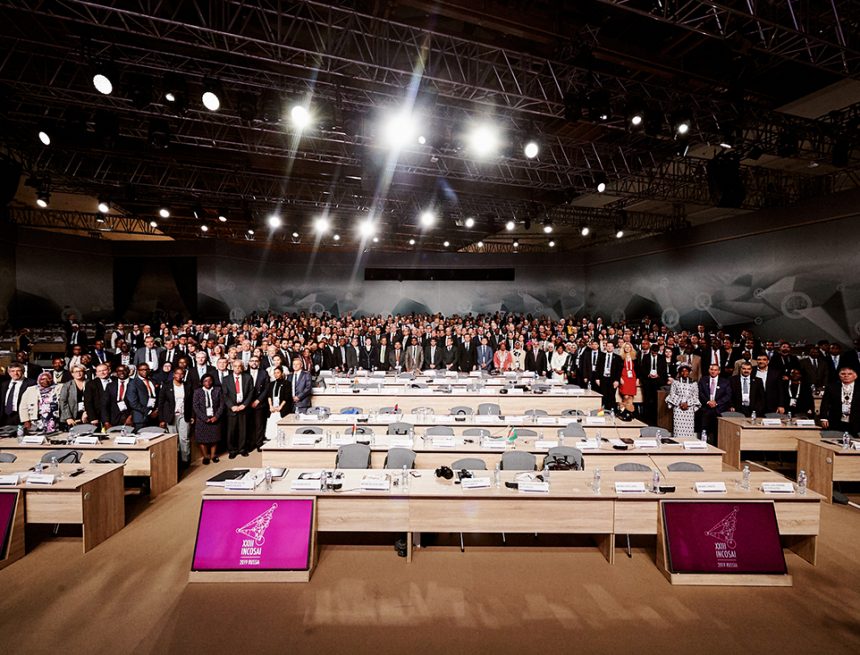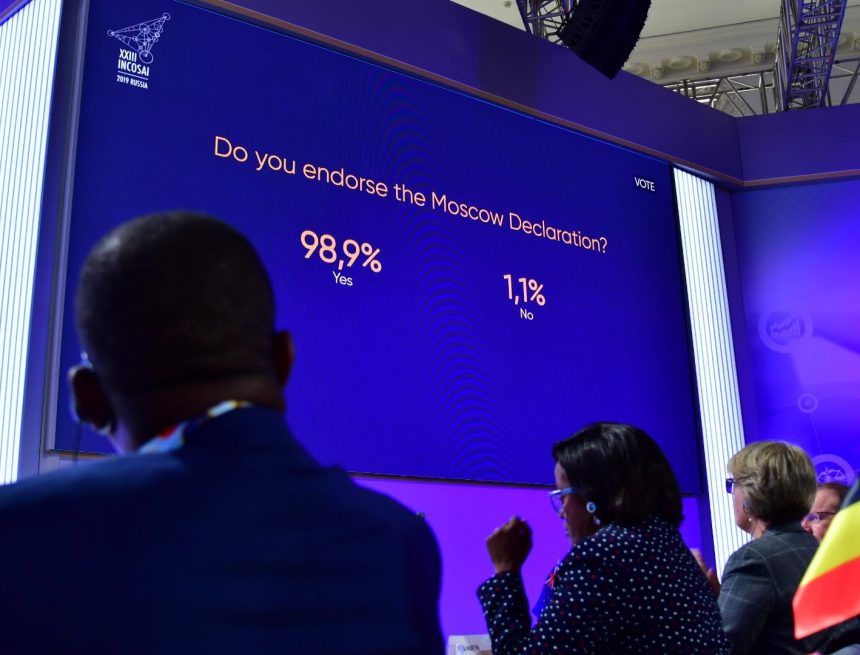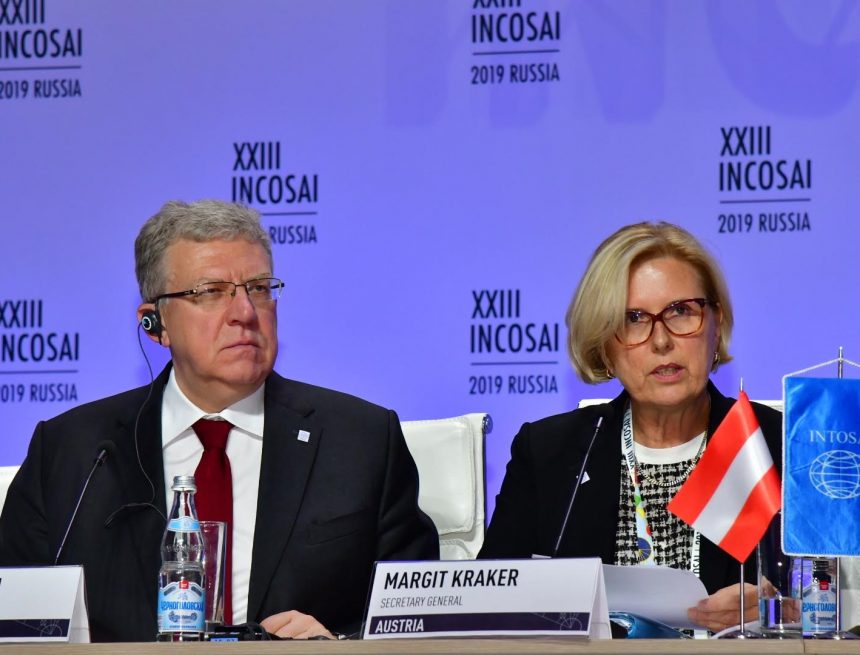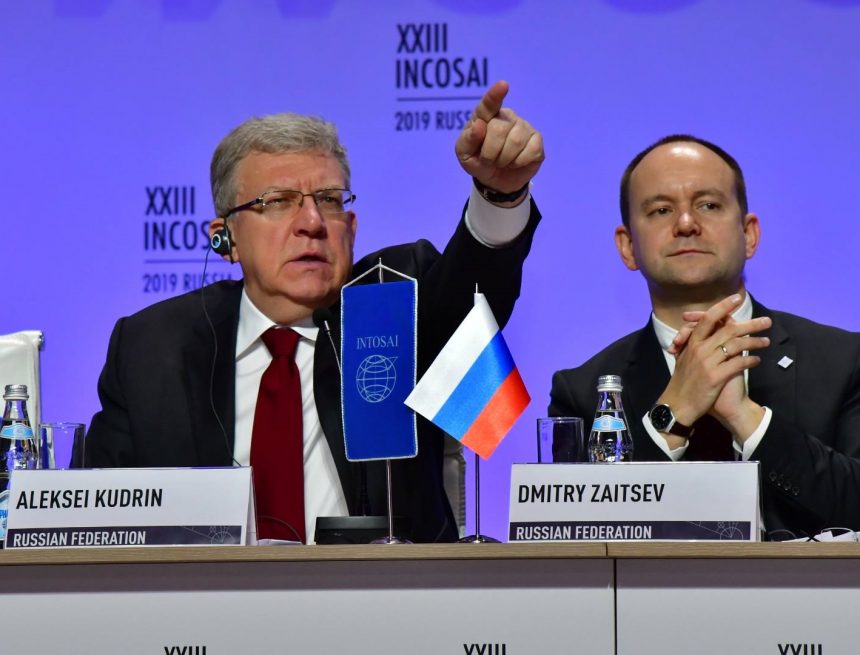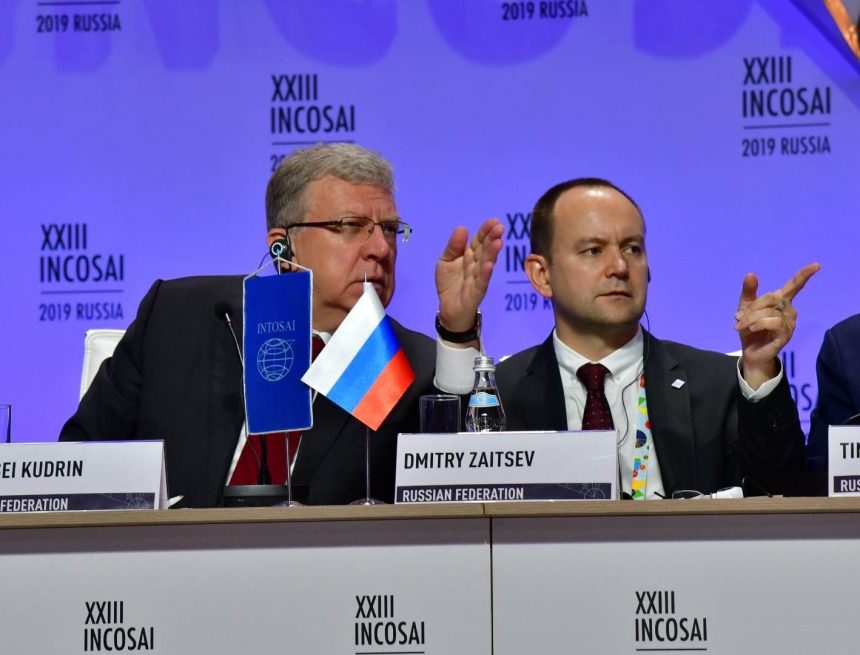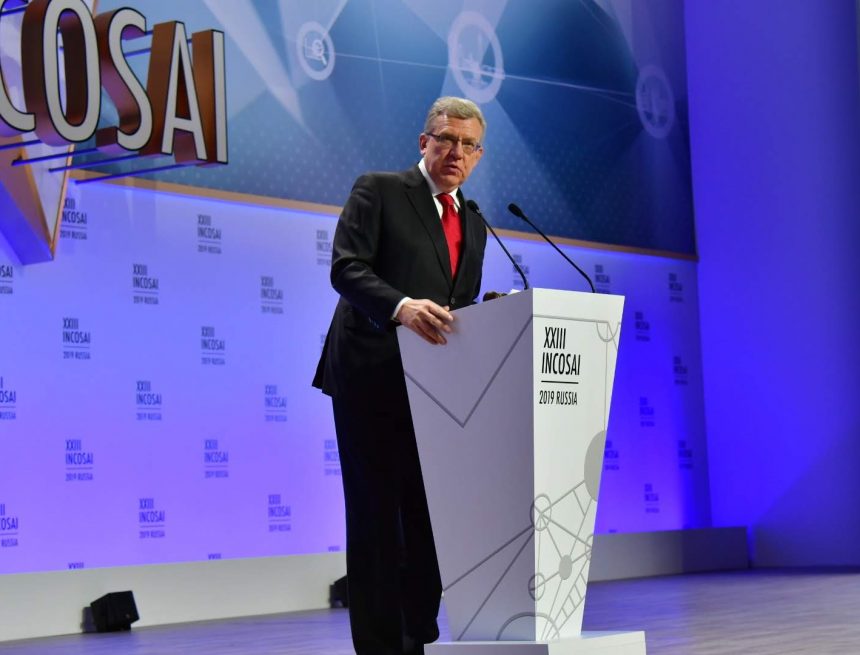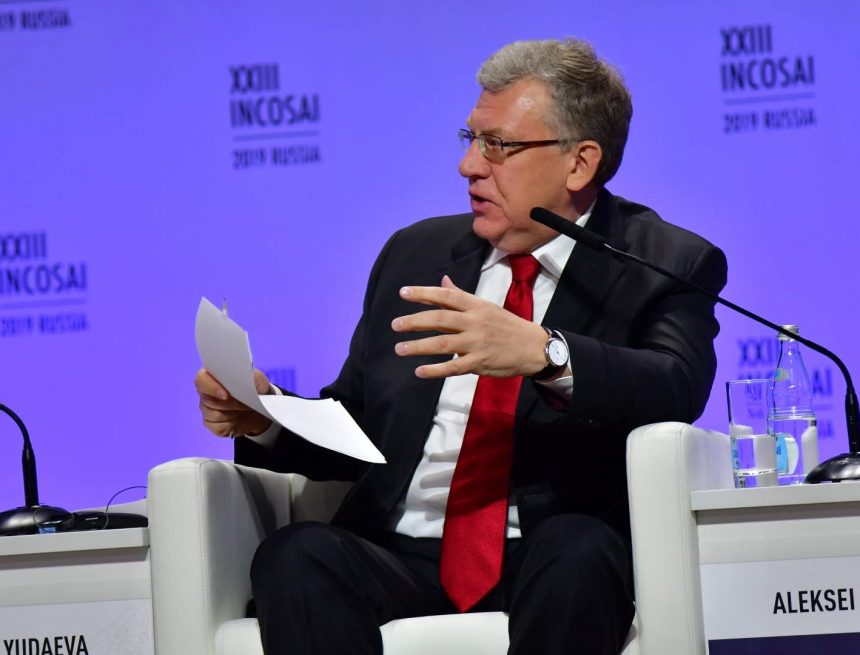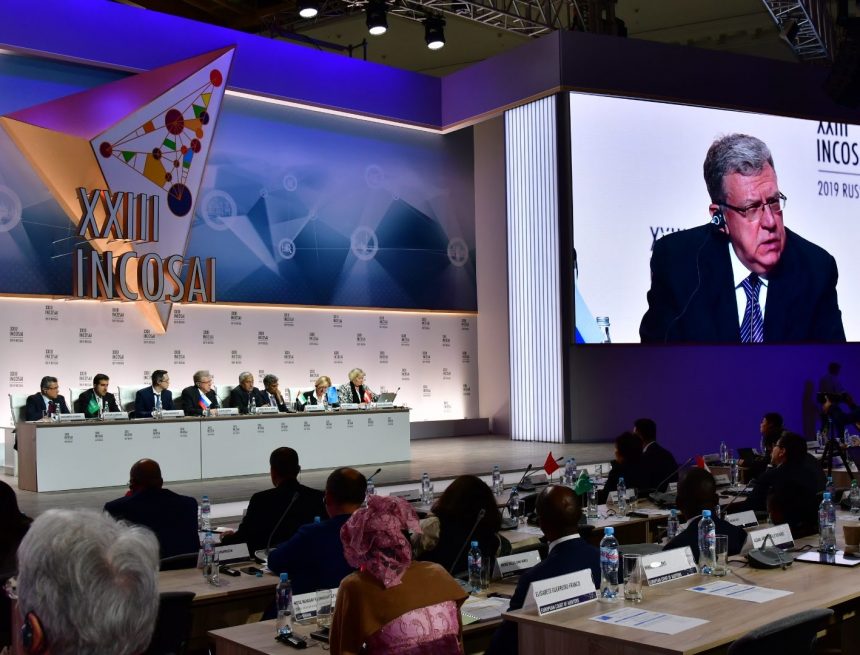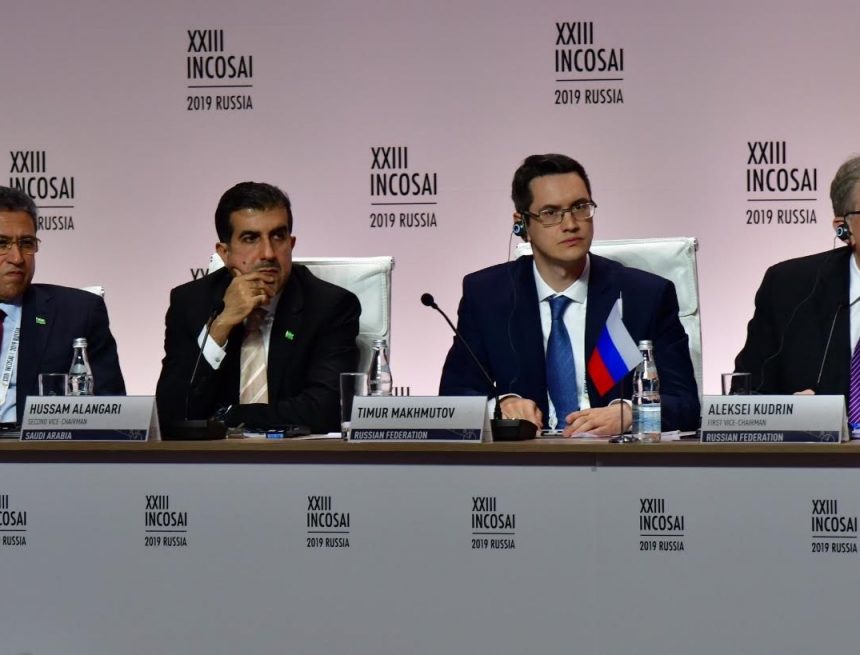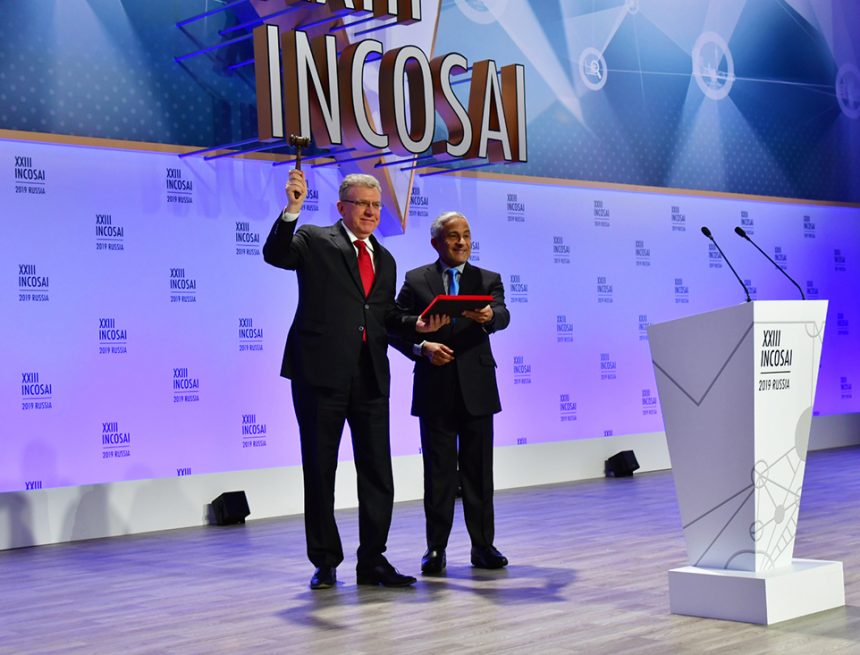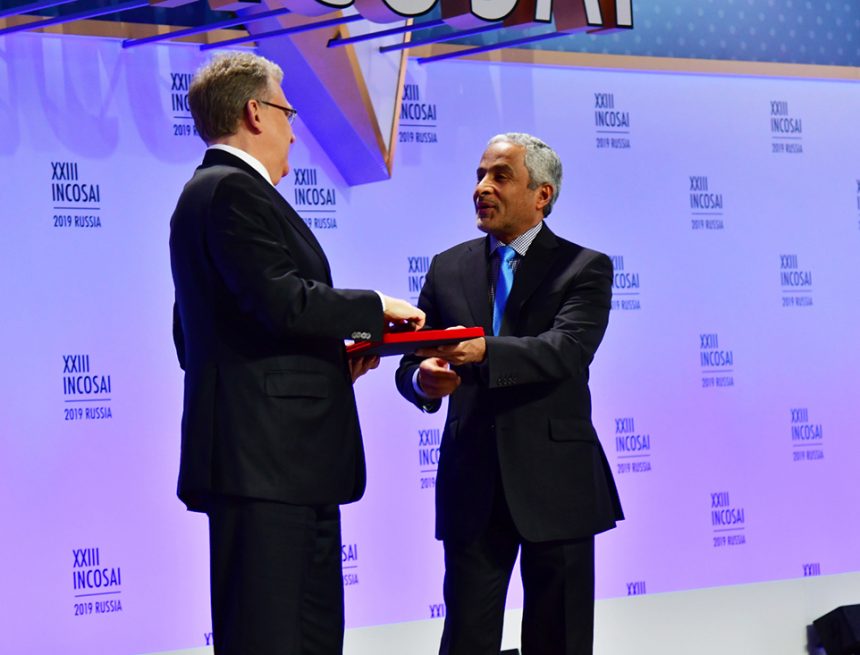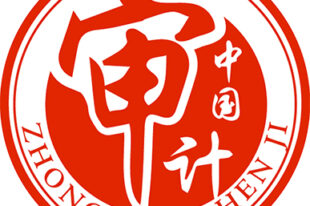Accounts Chamber of the Russian Federation Shares First Year Progress in Implementing Moscow Declaration
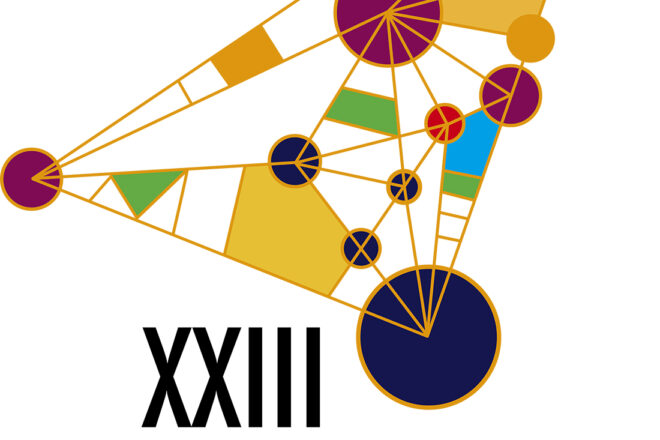
One year has passed since the International Organization of Supreme Audit Institutions (INTOSAI) community gathered to exchange best practices and discuss the most acute issues in auditing and public administration at the XXIII INTOSAI Congress (INCOSAI), where the Moscow Declaration was endorsed.
The declaration, a guide for INTOSAI’s future, highlights the spirit of INCOSAI discussions and provides a rededication to making a difference in the lives of citizens through 10 principles that focus on:
- Achieving nationally agreed targets, including those linked to the Sustainable Development Goals (SDGs);
- Responding effectively to opportunities brought by technological advancement; and
- Enhancing SAI impact.
The COVID-19 Pandemic has affected economies, societies, governments and Supreme Audit Institutions (SAIs) around the world. SAIs have adapted quickly, discovering new ways to perform oversight work and setting the example as agile, efficient and accountable public institutions while, at the same time, helping achieve progress in implementing the Moscow Declaration.
In honor of the one-year anniversary as INTOSAI Chair, the Accounts Chamber of the Russian Federation (Accounts Chamber) is pleased to share its contributions thus far in addressing the declaration’s principles.
ACHIEVING NATIONALLY AGREED TARGETS, INCLUDING THOSE LINKED TO THE SDGs
1. SAIs are encouraged to contribute to more effective, transparent and informative accountability for outcomes, keeping in mind the complexity of government efforts needed to support achieving national priorities and the SDGs.
The COVID-19 Pandemic has implications on public health, economies, governments and citizens on a global scale. The pandemic has also affected oversight work, particularly as SAIs explore approaches in auditing national pandemic responses while ensuring the SDGs remain a part of the accountability agenda. The Accounts Chamber publishes a monthly “ACRF Journal” that, in June, focused on SDG implementation in Russia. The edition included commentary from other SAIs, as well as international organizations. The Accounts Chamber also actively interacts within the Working Group on SDGs and Key Sustainable Development Indicators to share knowledge among SAIs related to measuring progress in achieving national and global economic and social goals.
2. SAIs are encouraged to develop a strategic approach to public auditing to support achieving national priorities and the SDGs.
In an effort to increase the transparency, consistency and soundness of transformation mechanisms, the Accounts Chamber piloted a “theory of change” methodology, analyzed achieving national goals in the areas of poverty reduction and income growth, identified evidence gaps in relevant policy measures, and studied anti-crisis efforts. While the COVID-19 Pandemic has made achieving progress in all national goals and SDGs challenging—especially those on poverty, health, and economic development—developing programs to increase resilience can help SAIs better respond to such challenges.
3. SAIs can enhance the value of public auditing by extending the provision of audit-based advice on important and strategic issues of parliament, government and public administration.
The pandemic disrupted normalcy, increased risks, and generated new key audit topics, such as health care, epidemiological service, early warning of epidemics and social support systems. The Accounts Chamber has continued emphasizing strategic partnerships between government and SAIs given the particular relevance of SAI recommendations in responding to the pandemic and achieving the SDGs.
RESPONDING EFFECTIVELY TO OPPORTUNITIES BROUGHT BY TECHNOLOGICAL ADVANCEMENT
4. SAIs can promote the principle of availability and openness of data, source code and algorithms.
The Accounts Chamber has published a report on openness of federal agencies, which includes data availability and quality as well as readiness to communicate with stakeholders, such as citizens and the media. To ensure accountability and predict crisis evolution, SAIs can use powerful, modern analytical methods; however, open and accessible government data is essential.
5. SAIs can make better use of data analytics in audits, including adaptation strategies, such as planning for such audits, developing experienced data analytic teams, and introducing new public audit techniques.
The Accounts Chamber is actively launching pilot projects on advanced research methodologies, including modern qualitative methods, advanced time series econometrics and microsimulation. An environment that allows experimentation is a key success factor.
ENHANCING SAI IMPACT
6. SAIs can foster an experimental mindset to enhance innovation and development.
The Accounts Chamber is piloting several projects to introduce advanced collection and analysis methods, continues identifying evidence gaps in policy mixes and will apply best practices to the entire organization.
7. SAIs may extend the focus on (a) identifying risk areas of national and international interest and raising awareness of risks; (b) the need for managing systemic risks in government, in addition to operational, enterprise and other risks of a single entity.
Fraud and corruption risks increase during times of crisis. In the face of emergency conditions, requesting government updates to forecasts, revised strategies to mitigate risks and minimize damage, and early warning system development is imperative. SAIs can also facilitate stakeholder involvement in risk assessments—the Accounts Chamber conducts a series of stakeholder interviews to assess risks in implementing key public policy measures. Additionally, INTOSAI’s Supervisory Committee on Emerging Issues was established as platform for SAIs to collaborate and share experiences in responding to emerging challenges.
8. SAIs are encouraged to nurture the auditors of the future who can employ data analytics, artificial intelligence tools and advanced qualitative methods, enhance innovation, and act as strategic players, knowledge exchangers and producers of foresight.
To develop new competencies, the Accounts Chamber conducts training for all employees, which covers research design, risk assessment, theory of change, program evaluation and data analytics and is now aiming to develop a certification system prototype for advanced strategic audit and policy evaluation.
9. SAIs can consider finding more ways to address inclusiveness when conducting audits as a key point of the 2030 Agenda (with its principle of leaving no one behind) and other development agendas.
The Accounts Chamber underscores inclusion as a primary principle of social and economic development, and recent audit subjects include government spending on specialized vehicles for disabled people and housing provisions for orphans.
10. SAIs can increase positive impact by establishing productive interaction with the auditee and enhancing cooperation and communication with the academic community and public in general.
The Accounts Chamber launched an expert platform to facilitate communication with subject matter experts, which currently includes about 300 experts from leading Russian universities, research institutions, businesses and consulting bodies. At the onset of 2020, several of the nation’s foremost universities agreed to establish data laboratories that would hire prospective research students and professors to participate in projects on topics deemed important for the Accounts Chamber activities. Moreover, the Accounts Chamber contributes to university projects and events—sharing knowledge and expertise with students, who are potential “auditors of the future” and providing the latest audit results and data to professors for use in academic works. The Accounts Chamber also publishes more reports and analyses than ever while enhancing communication with non-governmental organizations, communities and citizens, including social media.
The Moscow Declaration has proven to be a valuable mechanism, especially as we navigate the COVID-19 Pandemic. As Chair of INTOSAI, the Accounts Chamber has achieved significant results in implementing the declaration’s provisions by extending the practice of remote auditing, more actively using big data analytics, and providing high-quality content to government authorities and the public. We hope all SAIs will share experiences in implementing the Moscow Declaration.
Leave no one behind and lead your way.
Aleksei Kudrin, INTOSAI Chair
